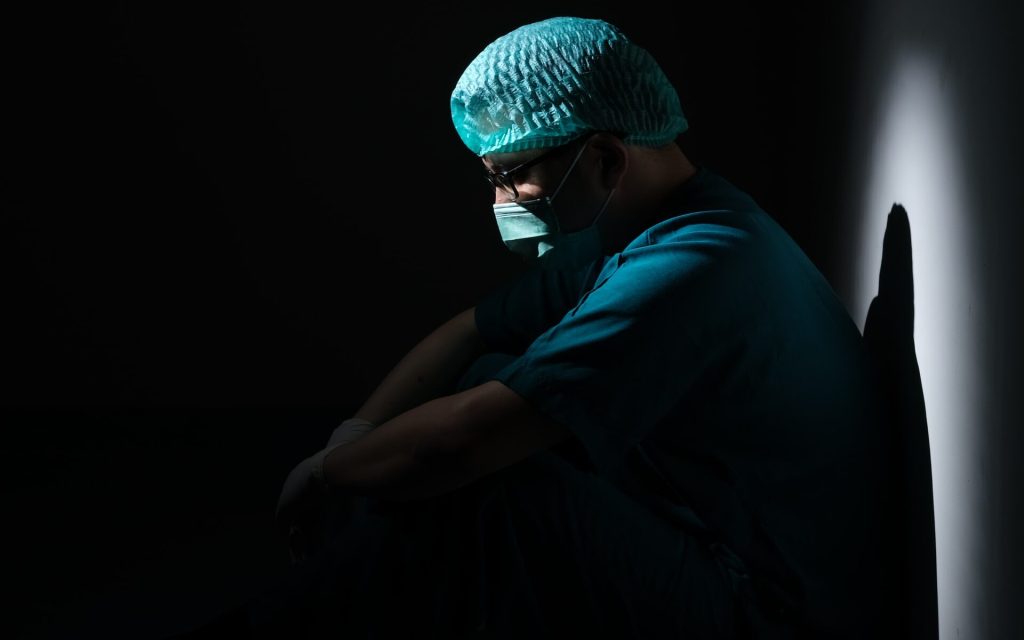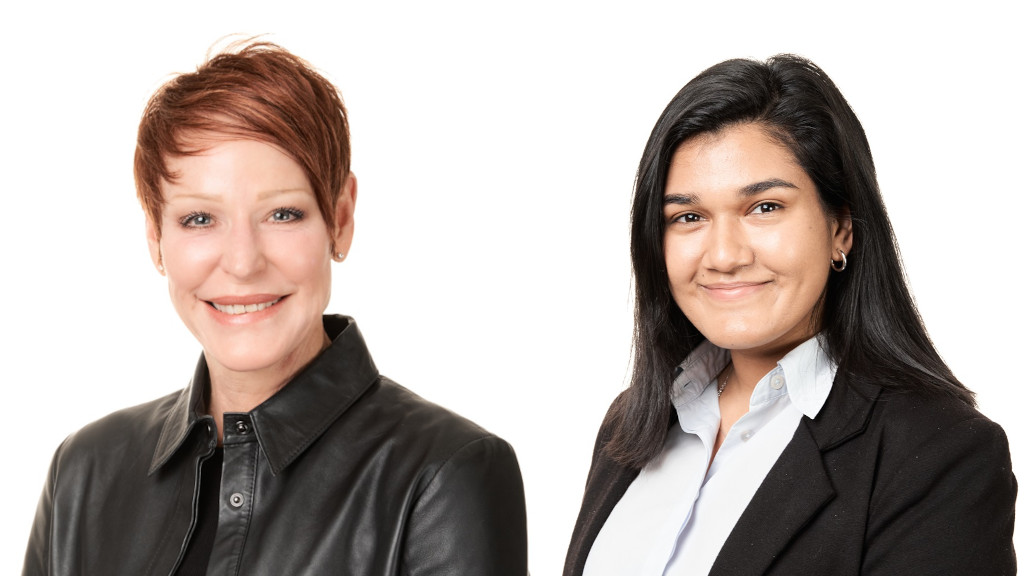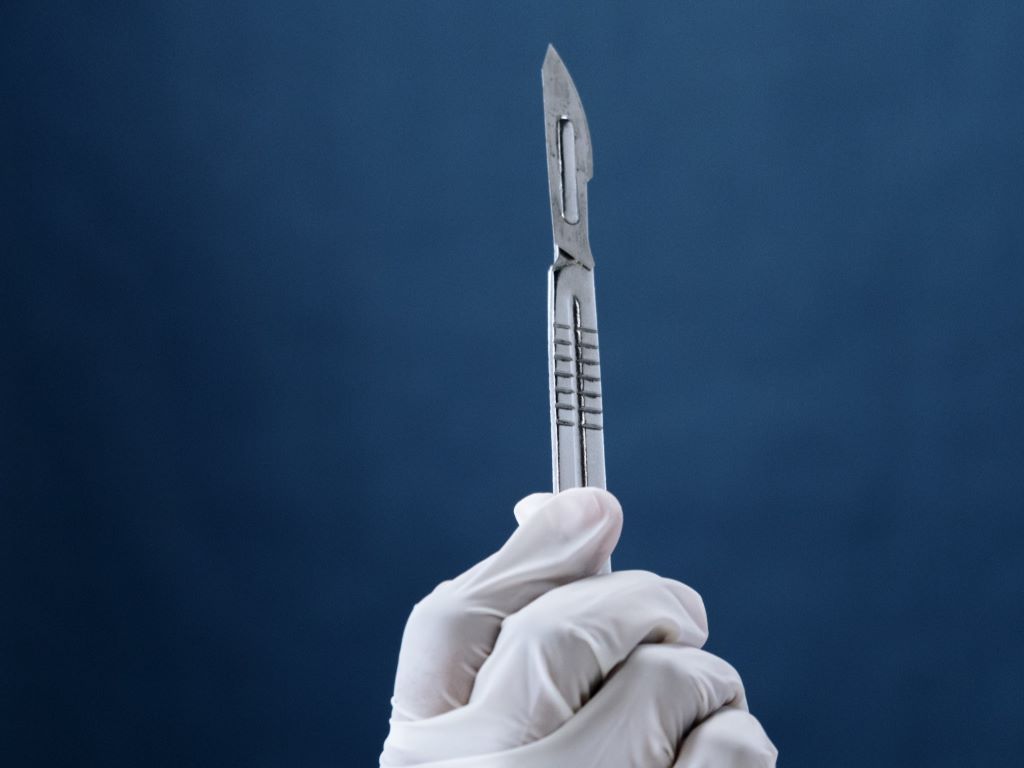Criminalisation of Medical Errors: What are the Issues?

By Thabo Molelekwa
The South African Medical Association has for years raised concerns about the criminalisation of medical errors, stressing that current legal practices may undermine patient safety and deter doctors from performing high-risk procedures.
Individual healthcare workers or teams of healthcare workers, like all other people, sometimes make unintentional errors. Though public recognition of the problem may be lacking, there is substantial scientific literature recording and describing the issue. In its landmark “To err is human” report published in 1999, the United States Institutes of Medicine wrote that “the problem is not bad people in health care – it is that good people are working in bad systems that need to be made safer”.
Medical errors can take many forms – from diagnostic and surgical, to medication and device and equipment. Pinning down a definition is hard although two formulations in academic literature are: “the failure of a planned action to be completed as intended or the use of a wrong plan to achieve an aim” and “unintentional deviation from safe practice”. Some argue against the use of the term “errors”, given that it stigmatises those who make “errors”.
A variety of approaches have been used to reduce medical errors. One of the most striking is the use of aeroplane-style checklists before and during surgery – with one such checklist having been backed by the World Health Organization. A review of such checklists published in the British Medical Journal in 2012 concluded that “surgical checklists represent a relatively simple and promising strategy for addressing surgical patient safety worldwide”.
Error v negligence
While the terms medical errors and medical negligence are often used interchangeably, they are in fact quite distinct, explains Professor Ames Dhai, SAMA’s vice chairperson and former director of the Steve Biko Centre for Bioethics at Wits University, in an interview with Spotlight.
“Medicine is exceedingly complex and errors do unfortunately occur from time to time (in most instances no harm comes from them). In most instances, the error cannot be attributed to the ‘fault’ of a person and is just a consequence of the procedure or other systemic factors.” The element of “fault”, Dhai says, is what distinguishes errors from medical negligence. Medical negligence occurs, she says, when the standard of care fails to meet the expected standard of the reasonable doctor in that discipline under the prevailing circumstances, leading to the patient suffering harm.
“If the ‘fault’ is deemed to be intentional, one is no longer negligent, and [therefore] potentially guilty of murder (the distinction being negligence vs intent),” Dhai explains.
“To be clear, doctors who are grossly negligent or reckless need to be held accountable. However, nearly all doctors don’t fall into this category. They are ethical, caring, and only want the best for their patients,” she says.
According to SAMA, due to a lack of proper, transparent structures to investigate, explain, account, and resolve instances of medical errors, families understandably turn to the criminal justice system for answers and accountability. This means some cases end up in court.
One high-profile case is that of paediatric surgeon Professor Peter Beale, who faces multiple charges, including three counts of murder and two of fraud, linked to the deaths of three children between 2012 and 2019. The state claims the deaths were caused by wrongful and negligent actions and unnecessary procedures by Beale.
But SAMA argues that the criminal justice system, designed for addressing criminal acts, is not the most suitable mechanism to navigate the complexities of medical practice. They stress that their concerns about charging, prosecuting, and convicting doctors in no way seek to minimise the impact of such devastating events on the families and loved ones involved.
“Instead, we are worried that criminalisation of bona fide medical errors and adverse events is an unsuitable response that would do little to prevent future tragedies and may in fact lead to other unwanted consequences that would be detrimental to both the profession and patients,” explains SAMA chairperson Dr Mvuyisi Mzukwa. He argues that criminalising errors would potentially ensure that they will be concealed and unreported, adding that “by hindering disclosure and reporting, one stifles opportunities to learn from errors and improve the system”.
But not everyone agrees. Dr Siraaj Khan, a lecturer at the Steve Biko Centre for Bioethics, describes the relevant law as straight-forward and says it is not in need of reform. “I think we need to differentiate being charged with medical negligence in a criminal court and being held liable or found guilty at the end of the day. And you’ll see that there are very few instances where a medical practitioner is actually found guilty,” he says. “So in my opinion, the law as it stands doesn’t require any intervention.”
Khan points out that if a medical doctor makes an error, it doesn’t automatically mean that they are negligent. The error has to be one that a reasonable doctor in the position of that particular medical doctor would not have made. Only if the standard falls short of the reasonable expert in that position will the conduct be criminalised, and that needs to be proven beyond a reasonable doubt in a criminal court. “So it’s a higher standard than that used in a civil court,” says Khan. “In a civil court, if there’s an action for medical negligence, it just needs to be proven on a balance of probabilities. Whereas if you charge a doctor with culpable homicide, for example, the standard of negligence needs to be proven beyond a reasonable doubt in a criminal court.”
But Dhai is critical of the status quo. She argues that the law, as it stands and as it is applied, may hamper patient safety and the achievement of a safety culture (where systems thinking, rather than individual blame, is applied to learn from incidents to create better systems and provide safer care). “The criminal justice system often ignores systemic factors to instead target the individual who happened to hold the scalpel when the incident occurred,” she says.
“The environment of fear and the threat of litigation and criminal proceedings may also disincentivise doctors from practicing in high-risk specialties or operating on complex and difficult cases, thereby impeding access to much-needed care,” Dhai adds. Khan acknowledges the argument that criminalising medical errors encourages defensive medicine, but, “on the other hand”, he says, “the counter-argument is that if we do criminalise this, it sets the standard and it would require doctors to act with more prudence when performing these operations”.
Gross negligence
SAMA’s position is that the threshold for criminal proceedings should be elevated from negligence to gross negligence and recklessness. As pointed out by Larisse Prinsen, a senior law lecturer at the University of the Free State, in an article published by The Conversation, gross negligence is the standard in countries such as New Zealand, Australia, and England. SAMA also says that investigators and the National Prosecuting Authority (NPA) should be specially trained to fully appreciate the complexities involved in medical errors and adverse events. The NPA is responsible for criminal prosecutions in South Africa.

In addition to increasing the threshold for prosecution from negligence to gross negligence or recklessness, Dhai argues that there is much more that needs to be done. This includes better application of the law, including better complaint management, alternative dispute resolution, and support for affected patients and health practitioners.
Changes to the relevant laws might well be on the way.
The South African Law Reform Commission (SALRC) has confirmed to Spotlight that they “received a request from a coalition of various healthcare-related bodies asking that the SALRC conduct an investigation to review the law of culpable homicide and the application thereof in a healthcare setting”. According to the SALRC, the request was approved by the Minister of Justice and Correctional Services on 27 June 2023 and the research is underway as “Project 152 Criminal Liability of Healthcare Professionals”.
Though much of SAMA’s current spotlight is on criminalisation of medical errors, South Africa does also have a much wider challenge of medico-legal claims against provincial health departments. Most of these claims are for alleged medical negligence relating to birth-related complications, particularly cerebral palsy. Though amounts paid out are a small fraction of total claims, they nevertheless amount to hundreds of millions per year and are a severe strain on provincial health budgets. A bill aimed at addressing state liability in such cases was introduced in the last parliament, but has not been passed. The SALRC has for several years also been looking at the issue of medico-legal claims and published a discussion paper on the matter in November 2021, though more than two years later, their final report on the matter has not yet been published.
What about the HPCSA?
The Health Professions Council of South Africa (HPCSA) regulates health professions in the country. This involves, among others, managing the licensing of doctors.
As explained in an article by the Medical Protection Society’s Dr Yash Naidoo, less serious complaints made to the HPCSA are handled through a process of mediation. If complaints are more serious, or if mediation fails, a formal complaints process kicks in. In some cases, this can turn into a formal professional conduct inquiry.
“When a matter proceeds to a formal inquiry, that is when costs – money and time – start to escalate,” writes Naidoo.
“Think of the inquiry as you would a typical courtroom matter on television. The complainant is represented by the HPCSA’s pro forma complainant, and the practitioner is the respondent who may have their own legal representation. Each party can call witnesses and the inquiry itself can take a day or more – depending on the number of witnesses and the complexity of the matter.”
As Naidoo explains, penalties can range from a caution or reprimand to large fines or removal from the register (which amounts to the person no longer being allowed to work as a health professional).
Speaking to Spotlight, HPCSA’s Acting Head of Division Corporate Affairs, Priscilla Sekhonyana, says that the HPCSA has a dedicated line for lodging complaints and investigating authority and committees for adjudication of matters. “The HPCSA has committees of experts in place to adjudicate on matters and all rules of natural justice inclusive of fairness are observed.”
She says the council has engaged with various parties on the criminalisation of medical errors. The HPCSA respects the laws of the country, Sekhonyana says, but she also notes that practitioners are starting to be discouraged from engaging in what may be perceived as risky procedures. “The HPCSA has had engagements with the National Prosecuting Authority on the matter and unfortunately, the situation has remained the same. However, should there be activities aimed at legal reform, the HPCSA will participate in that process and make its views known at that juncture,” she says.
Spotlight made several attempts to get comment from the National Department of Health on the criminalisation of medical errors. The department had not provided a response by the time of publishing.
Republished from Spotlight under a Creative Commons licence.



